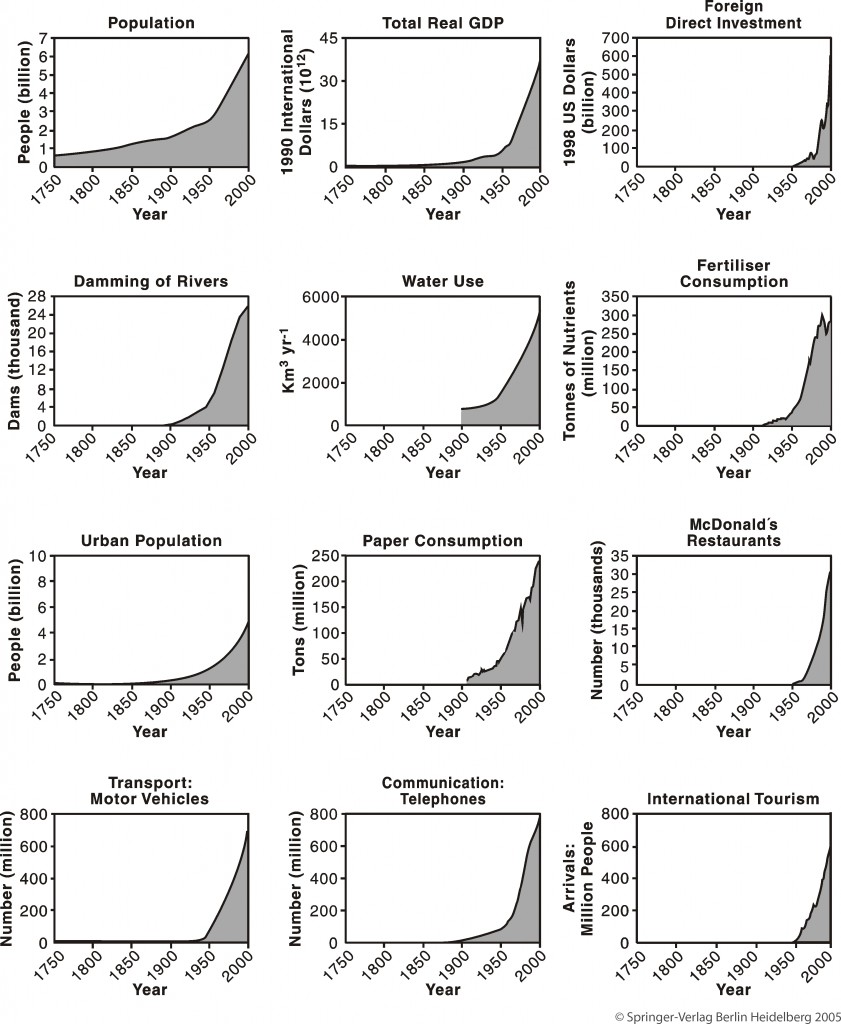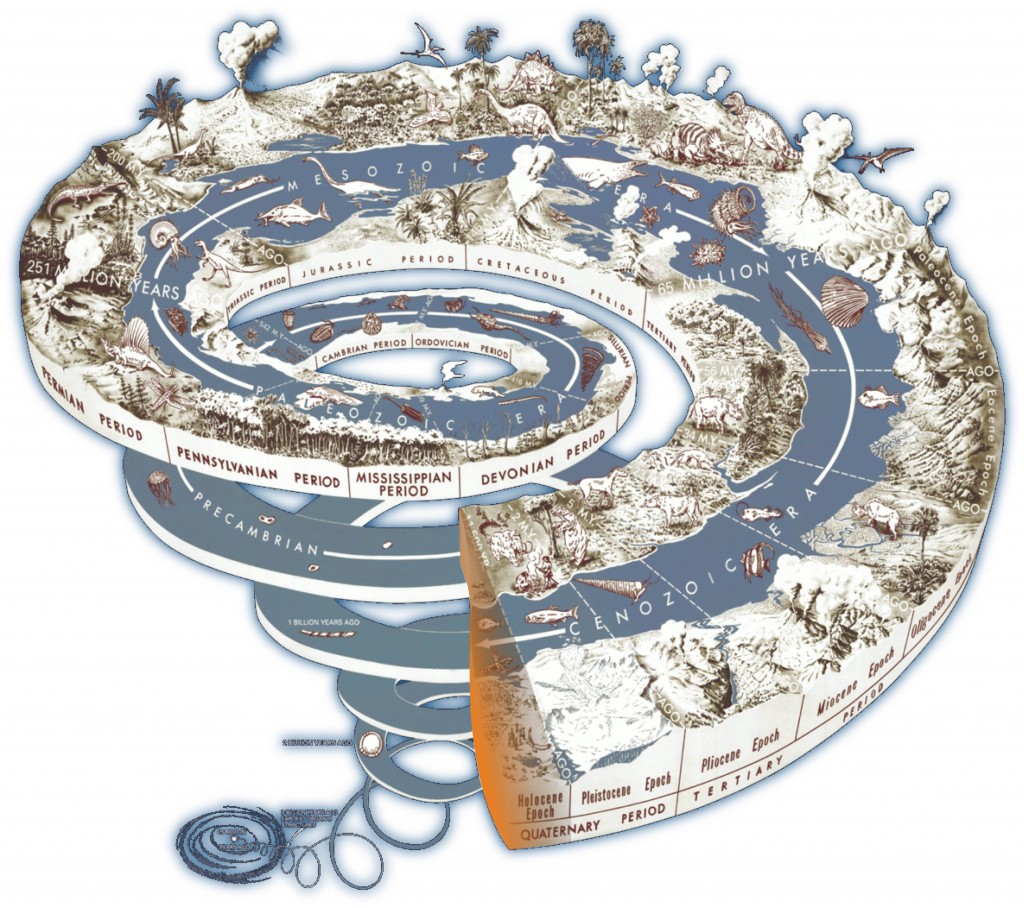The question of how the social sciences and humanities ought to relate to science, technology, engineering, and medicine (STEM) subjects is a recurrent one. It’s become a burning question in the world of “global change science” of late because the scope, scale, and magnitude of the human impact on Earth is unprecedented. Groups of otherwise sober geoscientists are sounding the alarm, as indicated by the concepts of the “Anthropocene,” “planetary boundaries,” and “global tipping points.” There’s been talk of a “new social contract” between global change researchers and the societies their inquiries are intended to serve. As part of this, geoscientists are now looking to those of us who study diverse human perceptions, norms, values, relations, institutions, and practices. As geoscientists recognize, we need to analyze, interpret, and change the habits of whole societies if we are to reduce and adapt to the enormous biophysical changes we are collectively instigating. Heide Hackmann and coauthors term this the “social heart” of global environmental change (2014). It implies that environmental social scientists and environmental humanists must step forward and make a difference now so that Earth future resembles something far less bleak than imagined by Cormac McCarthy in his shattering novel The Road.

As Naomi Klein argues in her new book This Changes Everything, the findings and predictions of geoscience are truly radical (2014). For her, geoscientists are proto-fifth columnists, challenging the current world order from within as a sort of respectable twin of the global anticapitalist movement. However, if one examines the way many leading geoscientists are now talking about the social sciences and humanities, there’s a clear unwillingness to unsettle the economic and political status quo. I say this because of the academic disciplines geoscientists imagine to be of “relevance” and the particular ways they talk about “the social.” Over the past two years I’ve taken a systematic look at various calls to arms published by geoscientists in leading peer-review journals (such as Nature, BioScience, and Ambio) and some new ones (notably Anthropocene Review). Time and again, only those social sciences broadly compatible with a scientific and technological worldview are regarded as relevant (e.g., economics, behavioral psychology, and urban planning). Time and again, the world of people is posited as the ontological mirror image of the world of rocks, ravines, and reefs. In other words, things like values, perceptions, fears, and hopes are seen as objectively measurable with the “right” methods, thereby grounding what’s called “actionable research” or “decision-relevant science.” What is screened out in all of this is much of what drives critical social science—such as a focus on power inequalities, violence, and struggle among different constituencies—and much of what preoccupies the humanities—such as the ideas of duty, care, respect, responsibility, rights, faith, cruelty, beauty, and so on.

Unfortunately, but not surprisingly, this anemic conception of what the “people disciplines” have to offer is fairly widespread. It animates Steven Pinker’s recent critique of the humanities published in New Republic (2013); so too Nicholas Christakis’s call to “shake up the social sciences” in The New York Times (2013). While these authors are absolutely right that the natural sciences, social sciences, and humanities could usefully enter into new relations, they are guilty of science imperialism. Their implicit belief is that the study of people should ultimately complement rather than challenge the means and ends of scientific inquiry. They consider no other forms of engagement across the “three cultures” divide that Jerome Kagan believes still splinters human knowledge (2009).
What is needed, and I am hardly alone in this belief, is a more dangerous form of inquiry arising from generous, experimental, and risky forms of interdisciplinary engagement. Such research would truly reckon with the profound implications for modern societies, especially the G20 economies, of global environmental change. It would see geoscientists infusing their inquiries into land change, water resources, ecosystems, nutrient cycles, and more with a range of insights about social power, injustice, cultural differences, varied human aspirations, and alternative conceptions of a desirable future. Such inquiry would thus complement geoscience’s current empirical and predictive radicalism with the sort of substantive radicalism favored by a critic like Klein. It would thereby be overtly political but not in the sense of “partisan,” “biased,” or lacking in “rigor.” A more “political” geoscience would not be the enemy of “sound science.” It would acknowledge the politics already built into all forms of science but seek to decouple these politics from the path dependencies of the current social order (this coupling is a form of unspoken power sometimes called a “scientized politics”). It would thereby identify alternative values-means-ends packages (VMEPS), where “problems,” “solutions,” relevant “facts,” and feasible “interventions” all become relative to specific human conceptions of the world and associated aspirations for the future. With a number of coauthors, I’ve made this case in a recent Nature Climate Change article (Castree et al. 2014).
This will almost certainly seem lunatic to most geoscientists; it also obliges critical social scientists and humanists to ask how they can better ally with geoscientists without being co-opted or simply ignored. But if you think about it, what I’m suggesting is far, far better than the current alternatives. Of late, many have expressed alarm that some geoscientists are rushing to explore “Plan B”—that is, techno-fixes like seeding the upper atmosphere with particles. Certainly, radical science-led interventions justified in the name of an “environmental emergency” are dangerous. But an equal danger arises from the slower effects of “groupthink.” My analysis suggests that while most geoscientists do not advocate geoengineering, many are being seduced by the idea of “integrative inquiry,” where they join forces with a (narrow) range of social scientists (while virtually ignoring the humanities). We have seen how dangerous groupthink can be in the discipline of economics, now subject to searing criticism because of its role in blinding the business community and politicians to the crisis that erupted in 2007. We should be equally wary of geoscience allying with a select group of environmental social scientists to frame global agendas for how to respond to worldwide biophysical change in the decades to come.
To be clear, I’ve got nothing against “dangerous knowledge.” What I’m arguing is that some knowledge is dangerous because it protects the status quo, even as it exposes many to the inequities of the system while rendering them powerless to change it. Other knowledge, meanwhile, is dangerous because it threatens the powers that be and gives voice to those who are marginal in the West and beyond. We need more of the latter. What a fillip it would be if more geoscientists could understand that the “people disciplines” are far more than an epistemological twin to their own invaluable research into what humans are doing to Earth. The readers of, and contributors to, Environment and Society have their part to play in changing the prevailing intellectual climate about Earth present and future. For some of us, we’ll need to enter into new conversations with interlocutors we’re not accustomed to engaging with.
Noel Castree is a Professor of Geography at the University of Wollongong, Australia, and the University of Manchester, England. His current research focuses on the politics of knowledge among various epistemic communities analyzing global environmental change.
Castree, Noel, William M. Adams, John Barry, Daniel Brockington, Bram Büscher, Esteve Corbera, David Demeritt, et al. 2014. “Changing the Intellectual Climate.” Nature Climate Change 4: 763–768, doi 10.1038/nclimate2339.
Cite as: Castree, Noel. 2014. “Dangerous Knowledge and Global Environmental Change: Whose Epistemologies Count?” EnviroSociety. 14 November. www.envirosociety.org/2014/11/dangerous-knowledge-and-global-environmental-change.